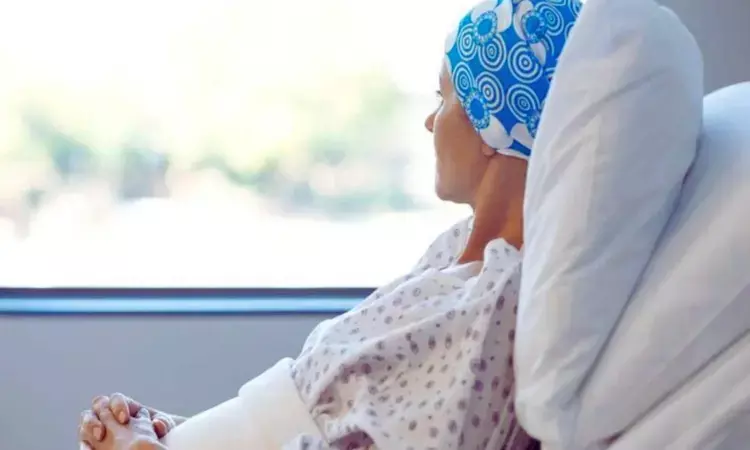- Home
- Medical news & Guidelines
- Anesthesiology
- Cardiology and CTVS
- Critical Care
- Dentistry
- Dermatology
- Diabetes and Endocrinology
- ENT
- Gastroenterology
- Medicine
- Nephrology
- Neurology
- Obstretics-Gynaecology
- Oncology
- Ophthalmology
- Orthopaedics
- Pediatrics-Neonatology
- Psychiatry
- Pulmonology
- Radiology
- Surgery
- Urology
- Laboratory Medicine
- Diet
- Nursing
- Paramedical
- Physiotherapy
- Health news
- Fact Check
- Bone Health Fact Check
- Brain Health Fact Check
- Cancer Related Fact Check
- Child Care Fact Check
- Dental and oral health fact check
- Diabetes and metabolic health fact check
- Diet and Nutrition Fact Check
- Eye and ENT Care Fact Check
- Fitness fact check
- Gut health fact check
- Heart health fact check
- Kidney health fact check
- Medical education fact check
- Men's health fact check
- Respiratory fact check
- Skin and hair care fact check
- Vaccine and Immunization fact check
- Women's health fact check
- AYUSH
- State News
- Andaman and Nicobar Islands
- Andhra Pradesh
- Arunachal Pradesh
- Assam
- Bihar
- Chandigarh
- Chattisgarh
- Dadra and Nagar Haveli
- Daman and Diu
- Delhi
- Goa
- Gujarat
- Haryana
- Himachal Pradesh
- Jammu & Kashmir
- Jharkhand
- Karnataka
- Kerala
- Ladakh
- Lakshadweep
- Madhya Pradesh
- Maharashtra
- Manipur
- Meghalaya
- Mizoram
- Nagaland
- Odisha
- Puducherry
- Punjab
- Rajasthan
- Sikkim
- Tamil Nadu
- Telangana
- Tripura
- Uttar Pradesh
- Uttrakhand
- West Bengal
- Medical Education
- Industry
New PET tracer may identify diverse invasive mold infections behind life-threatening illnesses in cancer and transplant patients: Study

Cancer Care
A novel PET radiotracer can accurately detect a wide range of mold species that are linked to dangerous infections, according to new research presented at the Society of Nuclear Medicine and Molecular Imaging 2025 Annual Meeting. The imaging agent has the potential to dramatically enhance the diagnosis and monitoring of invasive mold infections in patients.
Advances in cancer and immunosuppressive treatments have helped many patients live longer, but they also leave more people with weakened immune systems, making invasive mold infections increasingly common. With mortality rates of invasive mold infections reaching up to 85 percent, early and accurate diagnosis followed by timely treatment is critical to improving patient outcomes.
“Currently it’s very difficult to detect invasive mold infections,” said Carlos Ruiz-Gonzalez, MD, a postdoctoral research fellow at Johns Hopkins University Medical School in Baltimore, Maryland. “Definitive diagnosis often depends on invasive procedures or on biomarkers that lack sensitivity for many mold species. In this study, we aimed to develop a PET tracer capable of detecting a broad range of mold infections and distinguishing them from inflammation with high sensitivity and specificity.”
The imaging agent, 18F-FDS, was first evaluated in vitro to determine its ability to detect 30 different strains of disease-causing molds collected from infected patients. 18F-FDS PET/CT was then performed to identify fungal infections in mice with weakened immune systems, as well as in four human patients with confirmed invasive mold infections, and five control patients with inflammatory diseases or cancer, but no infections.
18F-FDS was found to quickly and specifically accumulate inside a wide range of disease-causing molds (including drug-resistant strains) while showing no uptake in heat-killed molds or human cells. Among mice, it accurately identified fungal infections in the lungs, brain, and sinuses, and was able to distinguish these from non-infectious inflammation. In patient studies, 18F-FDS PET safely detected and localized mold infections-including one missed by a previous brain MRI.
“This research demonstrates that 18F-FDS PET is a promising, noninvasive diagnostic tool to detect mold-related invasive fungal diseases,” noted Ruiz-Gonzalez. “What’s more, since 18F-FDS can be easily produced from 18F-FDG, it can be synthesized on demand and made available globally. This can have a real impact for patients around the world.”
Reference:
Carlos Ruiz-gonzalez, Oscar Nino-meza, Medha Singh, Yuderleys Masias-leon, Amy Kronenberg, Madelynn Shambles, Xueyi Chen, Mona Sarhan, Elizabeth Tucker, Laurence Carroll, Kenneth Cooke, Olivia Kates, Shmuel Shoham, 18F-Fluorodeoxysorbitol PET for noninvasive detection of invasive mold infections in patients, Journal of Nuclear Medicine.
Dr Kamal Kant Kohli-MBBS, DTCD- a chest specialist with more than 30 years of practice and a flair for writing clinical articles, Dr Kamal Kant Kohli joined Medical Dialogues as a Chief Editor of Medical News. Besides writing articles, as an editor, he proofreads and verifies all the medical content published on Medical Dialogues including those coming from journals, studies,medical conferences,guidelines etc. Email: drkohli@medicaldialogues.in. Contact no. 011-43720751


